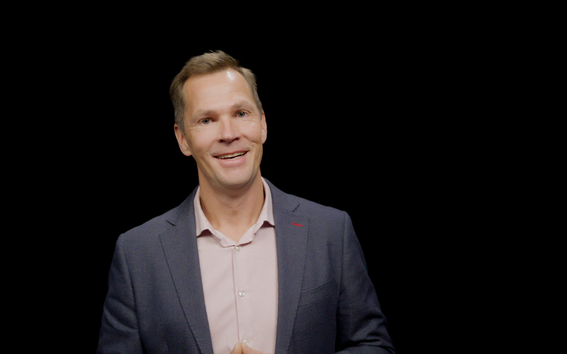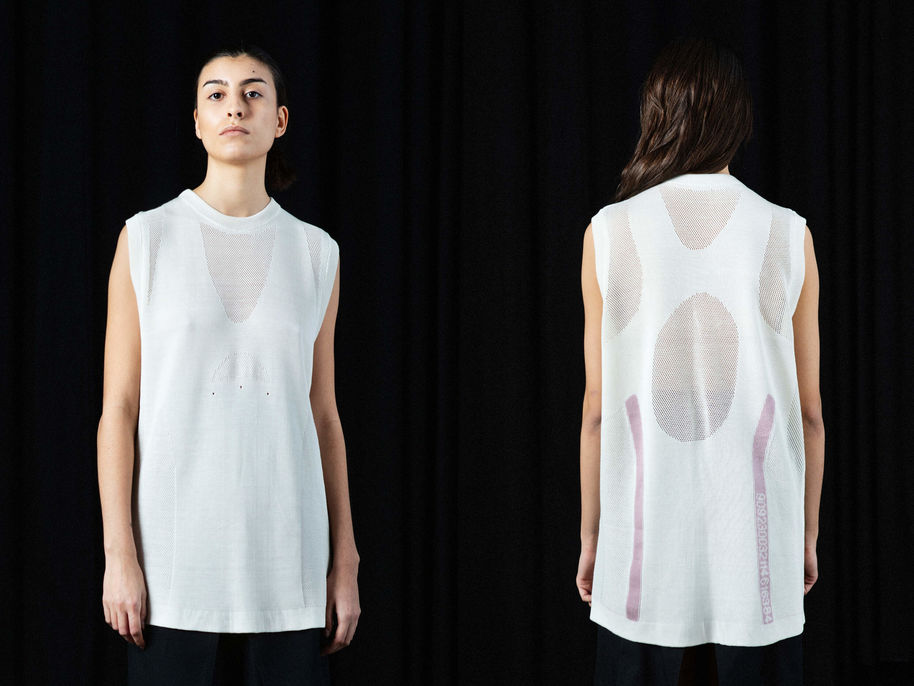Cut from the same cloth: leveraging Aalto University's ground-breaking research, Ioncell Oy develops sustainable textile fibers
We spoke with Antti Rönkkö, CEO and co-founder of the Aalto-based startup Ioncell Oy, who is targeting the global clothing and textile markets with a new, next-generation sustainable textile fiber.

The global textile fiber industry is worth a staggering 200 billion euros. 70,000 tons of textiles are consumed each year in Finland alone. Globally, most textiles are discarded at a landfill, while in Finland, they largely end up as energy waste.
But used textiles contain valuable raw materials that should be recycled into new textiles, not discarded. That’s one of the many reasons that start-ups like Ioncell are racing to develop new technologies suited for recycling precious textile fibers, and therefore supporting the transformation to the circular economy.
Ioncell® technology transforms used textiles and wood pulp into new textile fibres. Using a novel solvent called ‘ionic liquid’, cellulose from the raw material is transformed into fibers to make new, long-lasting fabrics. Ioncell® technology, developed at Aalto University, is sustainable and uses non-harmful chemicals.
We sat down with Ioncell’s newly appointed CEO and Co-Founder, Antti Rönkkö, to learn more about the journey from raw material to finished garment, as well as an exciting collaboration with Aalto University.
Hey Antti, what can you tell us about Ioncell® technology?
Ioncell fibres are created through a novel, non-toxic process of dissolving cellulose from wood pulp or textile waste, and then spinning the cellulose polymers to form new, high-quality textile fibers. The fibres can then be made into yarn which can in turn be made into fabrics that are used to create clothes or textile products.
The process relies on our novel ionic solvent which can safely break down cellulose without causing harm to the environment. It is a closed loop process, where all the liquids, water and solvent, are re-circulated.
Another benefit to this technology is that the Ioncell fibers are 100% natural, and do not therefore contain or release microplastics - a phenomenon that’s currently causing widespread damage to the environment and human health.
What can the Ioncell® technology be used for?
Ioncell’s vision is to shift the world into a new era of textile production. There can be many application areas for Ioncell, it works wonderfully for products that require very strong fibres.
We have already seen very strong interest from the fashion industry to introduce new, sustainable fibers to address the many sustainability challenges the industry is currently facing.
How did Aalto University play a role in Ioncell’s story?
In two fundamental ways. Firstly, the Ioncell®technology has been developed in various development projects at Aalto University. Without this ground-breaking research, the technology would not exist.
Secondly, Aalto University wanted to commercialise Ioncell® technology and harness it for good. The university believes in Ioncell’s potential, to the extent that it wanted to have a stake in the company.
This is the first time that Aalto University has become a partner in a spin-off company.

How did you come to take on this venture?
In practice, I joined as the CEO in August 2022 and we are now kicking off the company's operations as an independent start-up. I previously worked with Nanso Group, a Finnish brand house known for its iconic brands.
At Ioncell, I’m now responsible for everything apart from the development of the technology itself –and I do mean everything else. Last week I both pitched to a possible investor and set up our email domain.
What sort of demand is there for sustainable textiles?
The demand is driven by consumers’ and customers' growing awareness of environmental issues as well as the tightening of legislation. Consumers want durable, sustainable materials for their textiles and clothing. As far as legislation goes, there will be pressure to create more sustainable solutions, especially in the EU.
The market itself is huge, and the industry is being forced to change its bad habits. We believe there’s a bright future and an increasing demand for ground-breaking solutions like Ioncell.
What next for Ioncell?
Ioncell’s technology has been proven at a lab scale; now our focus is on commercialisation, and to kick off production in our pilot facility. The facility is built to simulate a closed-loop production process, making it possible for us to test the technology effectively.
In the coming years we are developing the technology further, and start generating turnover through our licensing model. I see us breaking into the global textile market in collaboration with global brand houses, driven by strong consumer demand.
This blog is a part of Aalto Formula. The unique combination of arts, technology and business at Aalto University provides the perfect platform for innovation. With sustainability, radical creativity and an entrepreneurial mindset, the platform comes alive as an impactful ecosystem empowering next-generation founders to develop solutions to the major challenges of our times. We call it the Aalto Formula.
Show other posts from this blog

VacuumWood.Tech: A wood structure start-up that’s going against the grain
Find out how VacuumWood.Tech is using ultra-sustainable wooden structures to fight climate change.
A free-flowing conversation with AI communication startup, Flowrite
We spend about 3.1 hours on work emails daily. We spoke with Flowrite, an AI communication startup that’s helping professionals save time.
Veri: A healthy discussion with a startup founder fighting poor metabolic health
Anttoni Aniebonam, CEO of startup Veri, is using tech to combat metabolic health. We spoke to Anttoni about Veri's metabolic health solution